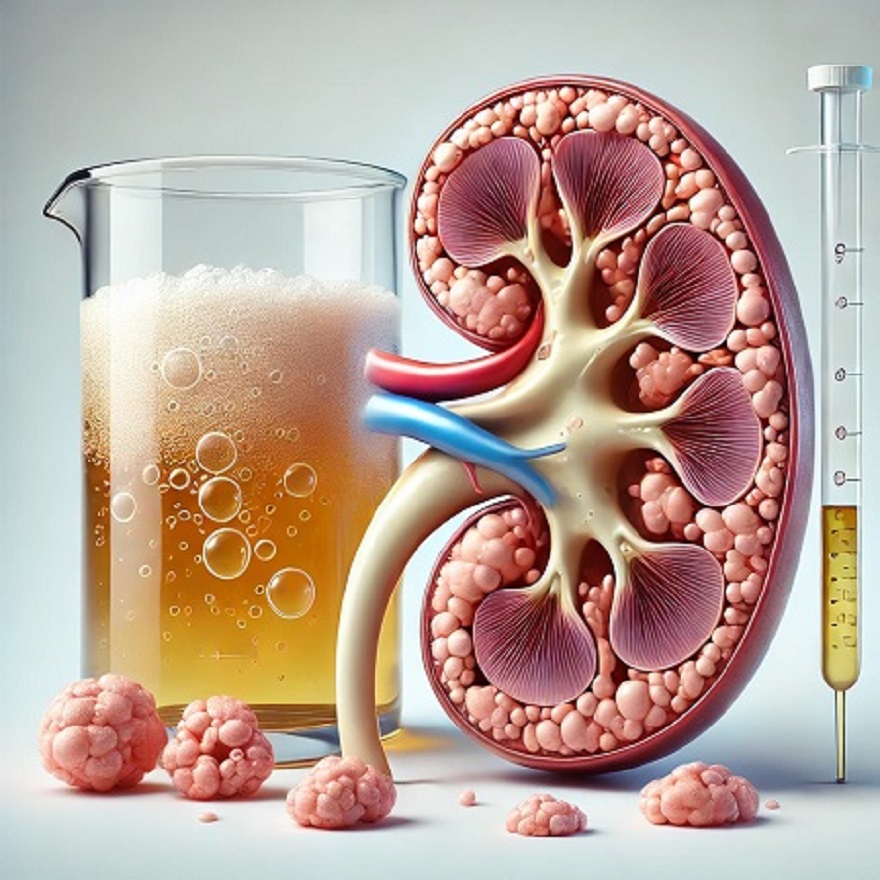Ayurvedic Treatment for Proteinuria: Natural Remedies to Reduce Protein in Urine- Aksa Ayurveda

Strong 8k brings an ultra-HD IPTV experience to your living room and your pocket.
Proteinuria is described as protein in urine. Normally, in very trace amounts or no protein comes in urine. It significantly increases when kidney filtration is disturbed. Proteinuria is a condition that is associated with early Kidney disease and some benign problems.
Proteinuria along with estimated glomerular filtration rate is used to diagnose chronic kidney disease. It is also used as an early sign in the detection of kidney Disease. The more protein in urine, the more degeneration of the kidneys.
Book Appointment for Ayurvedic Consultation: Ayurvedic Treatment for Proteinuria
Proteinuria and Chronic Kidney Disease Progression Values.
Proteinuria values can be assessed for chronic kidney disease in two ways
1. Degree of proteinuria
2. Albumin creatinine ratio
3. Albuminuria
1. Degree of proteinuria
- Normal - 150mg/24 hours
- Nephritic- 150 - 3000 mg/24 hours
- Nephrotic - greater than 3000 mg/24 hours
2. Albumin creatinine ratio
- ACR- < 30 mg/gm ( normal to mild )
- ACR- 30 - 300 mg/gm ( moderate )
- ACr - > 300 mg/gm ( severe )
3. Albuminuria (mg/day)
- Normal: Less than 30
- Microalbuminuria: 30-300
- Macroalbuminuria: More than 300
Book an Appointment for the related disease:
Ayurvedic Treatment for Kidney Failure
Ayurvedic Treatment for Acute Kidney Disease
Ayurvedic Treatment for Kidney Dialysis
Ayurvedic Treatment for Chronic Kidney Disease
Ayurvedic Treatment for Kidney Swelling
Etiology of Proteinuria:
Proteinuria can be classified into two types:
- Transient proteinuria ( temporary and may resolve by itself )
- Persistent proteinuria ( permanent )
Causes of transient proteinuria:
- Urinary tract Infection
- Fever
- Heavy exercise
- Vaginal mucus
- Pregnancy
Causes of persistent proteinuria:
- Glomerulonephritis
- Diabetes mellitus
- Connective tissue diseases
- Vasculitis
- Amyloidosis
- Myeloma
- Congestive cardiac failure
- Hypertension
Epidemiology:
In India, studies suggest a significant prevalence of proteinuria, with some research indicating rates as high as 12.3% in adults detected, and a higher prevalence in certain populations like those with diabetes and hypertension-induced chronic kidney disease.
Most Primary and secondary renal diseases are more common in males than females. Persistent proteinuria is twice as common in males than females.
As the age increases, the patient with uncontrolled Diabetes and Hypertension may cause proteinuria, usually above 40 years of age.
Pathophysiology:
Proteinuria is the result of three different pathways:
1. Glomerular Dysfunction
This is the most common cause of proteinuria. It alters the permeability of the glomerular basement membrane causing albuminuria. Glomerular dysfunction causes excretion of protein in urine, more than 2gm/ 24 hours.
Glomerular proteinuria results from a damaged glomerular filtration barrier or increased hydrostatic pressure. The main causes of Glomerular Dysfunction are Diabetic Nephropathy ( most common ), Drug Induced Nephropathy, Infection, Dyslipidemia, malignancy, inflammatory cytokines, Autoimmune disease like SLE.
2. Tubulointerstitial Dysfunction
This is due to impairment in Filtered protein uptake from Proximal convoluted tubule. This is a less severe type of proteinuria than Glomerular Dysfunction and excretion of protein in urine is less than 2gm/24 hours.
Common causes of tubulointerstitial dysfunction are Hypertensive nephrosclerosis, NSAID induced nephropathy, nephrotoxins, chronic tubulointerstitial disease.
3. Secretory proteinuria
Secretory proteinuria results from the oversecretion of specific proteins in the tubules, the most notable one being the Tamm-Horsfall proteins in interstitial nephritis.
Management
Treating the cause is the main focus for treating proteinuria. Most treatment modalities focus mainly on reducing the degree of proteinuria, particularly albuminuria. In the treatment modality guidelines recommend using ACE inhibitors and angiotensin receptor inhibitors (ARBs) in adults with more than 300 mg/ 24 hours of persistent proteinuria.
A new drug, Finerenone, was approved in July 2021 by FDA for treating chronic kidney disease associated with Type 2 Diabetes mellitus. It is used to reduce kidney degeneration and develop End Stage Renal Disease.
Treatment in Ayurveda for proteinuria:
Proteinuria in Ayurveda can be considered pravara avilmutrata, which means turbid and increased frequency of urine. It is a disease of mutravaha srotas.
As proteinuria ( persistent proteinuria ) is a sign of degeneration of the kidney which is chronic kidney disease, it can be reduced by using medication that slows down the chronic kidney disease .
There are many herbs in Ayurveda which are proven to act as nephroprotective, like punarnava, gokshura,chandana, shatavari, etc. which on proper dose and guidance can reduce the degeneration of the kidney.
There are many ayurvedic formulations and herbs also which act as a natural direction and reduce the strain of the kidney like gokshuradi guggulu. Chandraprabha vati. Rasayan churna, trinpanchmoola.
Proteinuria if detected in early phase can be treated using ayurvedic medication, Ayurveda acts as an alternate treatment for kidney disease treatment.
Proper diet and proper ayurvedic consultation, analysing your doshas and right ayurveda medicine, help your kidney to regain kidney functioning. Results can be more promising if the disease is not gone below stage 3B of chronic kidney disease.
Contact Us:
Aksaayurveda
Address: 1 FLOOR, PVT.449 KH. NO. 137/5/11, SANT NAGAR, BURARI, NORTH WEST DELHI, 110084
Email: [email protected]
Call Now: +91 88261 11667
Follow on Youtube: https://www.youtube.com/@aksaayurveda
Follow on Facebook: https://www.facebook.com/jeevaherbsindia
Follow on Instagram: https://www.instagram.com/aksaayurveda/
Note: IndiBlogHub features both user-submitted and editorial content. We do not verify third-party contributions. Read our Disclaimer and Privacy Policyfor details.


